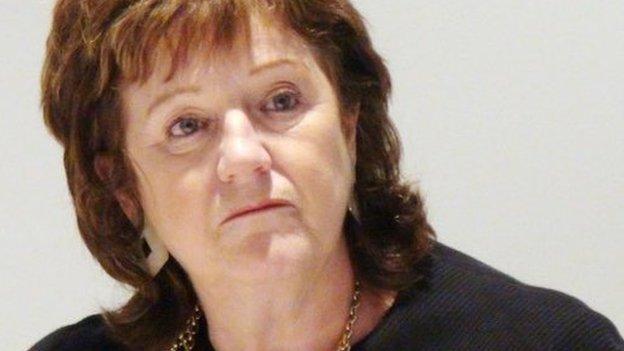Rotherham abuse scandal: Operation Linden report 'lets victims down'
- Published
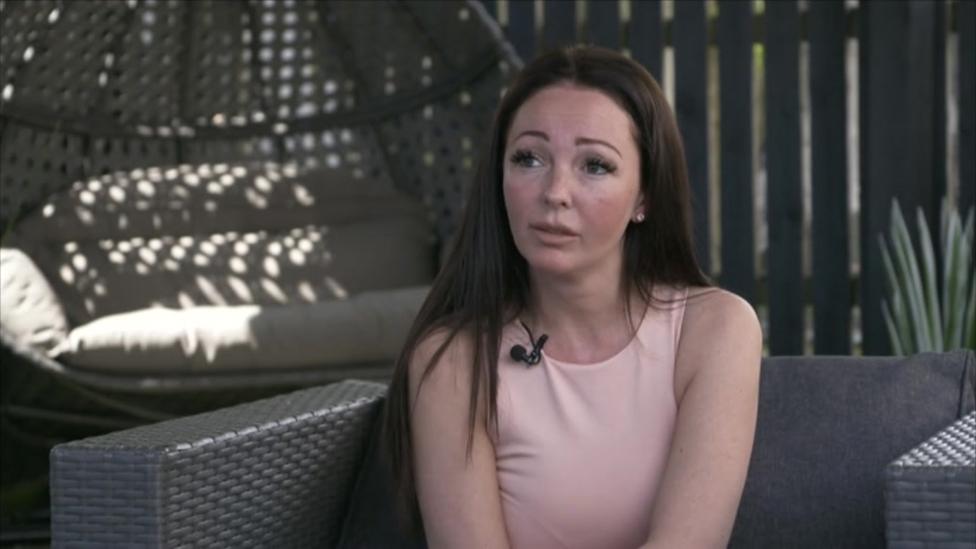
Sammy Woodhouse, who was abused in Rotherham as a teenager, has criticised the new report
A woman raped by Rotherham grooming gangs as a teenager says she is "disgusted" by the failure of a new report to hold any officers to account.
The police watchdog's eight-year investigation criticises the South Yorkshire force's approach to the abuse of more than 1,400 girls in the town
None of the 47 officers investigated were sacked due to the findings.
Sammy Woodhouse, who was abused from age 14, said no-one had been held to account despite "report after report".
The Independent Office for Police Conduct (IOPC) was tasked with examining the force's response to organised sexual abuse between 1997 and 2013.
A total of 47 current and former officers were investigated after the watchdog received 265 separate allegations from more than 50 complainants.
It said its investigation, dubbed Operation Linden, was one of the "largest and most complex" it had ever undertaken, second only to its investigations into policing of the Hillsborough stadium disaster.
It followed a report by Prof Alexis Jay in 2014, which detailed how girls as young as 11 were raped, trafficked, abducted, beaten and intimidated, predominantly by men of Pakistani-heritage.
'I don't tell people I'm from Rotherham'
How we got here: Rotherham abuse scandal
'We became known as terrorists and groomers'
IOPC investigators have found there were "systemic problems" within South Yorkshire Police that meant "like other agencies in Rotherham at that time, it was simply not equipped to deal with the abuse and organised grooming of young girls on the scale we encountered".
In one illustrative example, the watchdog said one parent concerned about a missing daughter said an officer told them "it was a 'fashion accessory' for girls in Rotherham to have an 'older Asian boyfriend' and that she would grow out of it".
Criticisms in the new report include a failure by police to recognise children and young people as victims, and a willingness by officers to accept what they were told by suspects at face value.
This was echoed by Ms Woodhouse, who said police had "missed opportunities" to stop her abuser, who was later jailed for 35 years.
"If they would have acted when I was making statements at 16 it could have prevented other people from even being abused," she said.
"The fact that they were ignoring it for so long just encouraged him, not just him but other people."
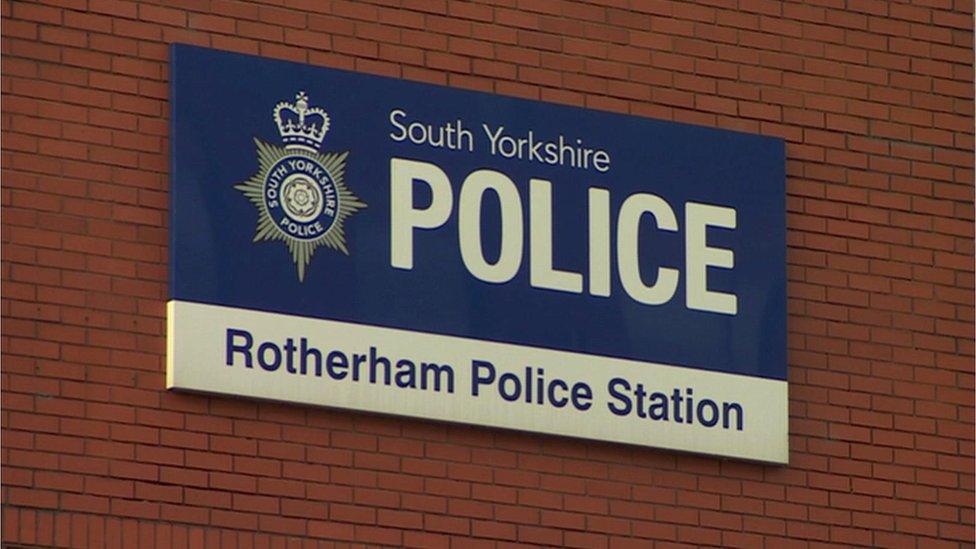
South Yorkshire Police failed to grasp the scale of child sex abuse in Rotherham, a report has found
Police and Crime Commissioner Dr Alan Billings said the report failed to "identify individual accountability" and contained "few new findings" despite years of "costly investigations".
Investigators also found:
The small team investigating the abuse had inadequate resources and was sometimes overwhelmed
A failure to recognise children and young people as victims, and viewing them as "consenting" to their own exploitation
Failures to understand that children being groomed and abused did not always view themselves as victims
Officers showed a "lack of professional curiosity" by accepting at face value what they were told by perpetrators and victims
A lack of awareness meant officers showed insufficient empathy towards survivors
Performance targets at the time prioritised burglary and vehicle crime "at the expense of other types of crimes including child sexual abuse and exploitation (CSA/E)"
The report also identified "ineffective working with other agencies" and an unwillingness to pursue cases where the victim did not make a complaint to police because "the feeling was there would be insufficient evidence for a successful prosecution".
It also criticised the computer system used to share intelligence as being "not fit for purpose".
"We found many instances where crimes were not recorded when they should have been, including reports of sexual assault and sexual activity with a child," the report said.
In a foreword IOPC director general Michael Lockwood said it made "uncomfortable reading".
"No child, or young person can ever consent to their own abuse or exploitation, nor should be seen as bringing matters upon themselves. Your protection should not have be seen as a lesser policing priority," he wrote.

Victims' voices
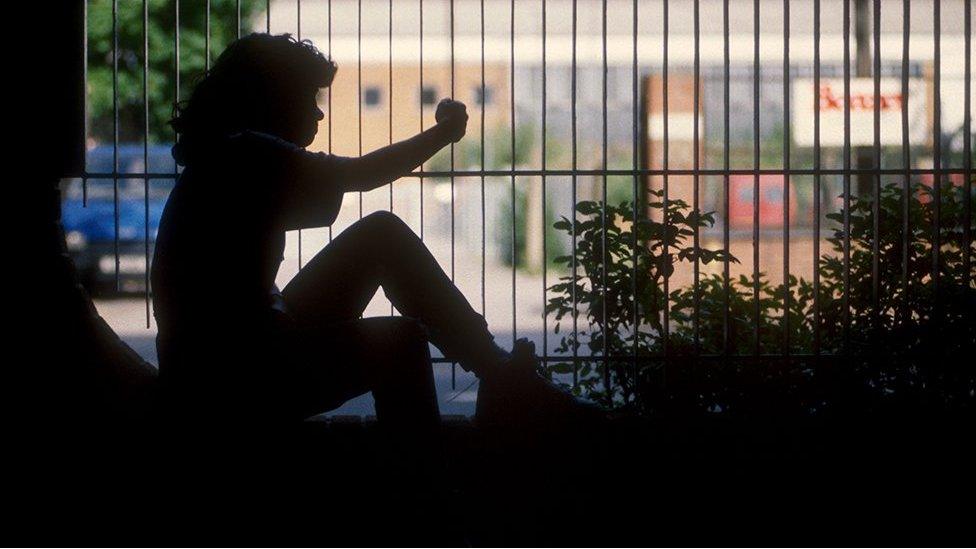
One survivor, who was abused from the age of 14, told the IOPC she came into contact with police officers "three or four times a week".
"When I look back now I can't believe how many times I came into contact with the police and how many chances they had to question me... but didn't," she told investigators.
Another said: "I was told repeatedly by the police that I was responsible for my own actions, allowing myself to be a victim."
Ms Woodhouse recalled one instance when police found her at a flat after being reported missing from home. She said officers "told me to write a note to him to tell him where I was because they didn't want him to worry about me"."I would have contact with the police on a daily basis," she said "I was never treated as a victim I was treated as somebody who was his mistress, his girlfriend as somebody who was part of his gang. I was victim blamed."

The IOPC made 13 recommendations, including improved training and support for officers.
South Yorkshire Police said it accepted the findings and was "deeply sorry", adding: "Victims deserved better from us."
Police and Crime Commissioner Dr Alan Billings said he was disappointed that "eight years of costly investigations" had resulted in "few new findings or accountability".
He said most of the report's recommendations had been made and implemented after previous investigations, and that the latest had failed "to identify any individual accountability".
"As a result, it lets down victims and survivors," he said.
The watchdog also upheld 43 complaints against individual officers, with eight facing misconduct and six facing gross misconduct charges.
Following disciplinary hearings held by the force, no officers have lost their jobs or faced criminal charges.
Ms Woodhouse said she was angered by "the fact that all this has happened and not one person will ever be held to account on a professional level".
"Lives have been ruined. Nothing can happen to replace all the damage that's been done. We're just left to get on with things," she said.
"I feel like they've chucked us a little bit of money in compensation. Police officers have just retired, if anything they've been rewarded."
Dr Billings said it was unfair for officers to have had allegations of misconduct "hanging over them for so long", but said the force was now "on a path of continuous improvement".


"We are committed to supporting victims of child sexual exploitation and abuse, listening to their accounts and gathering evidence for consideration of prosecution by the CPS, no matter how long or how challenging investigations are."
The pledge from the National Crime Agency which is currently working to bring the Rotherham perpetrators to justice. Its team, headed by senior investigating officer, Philip Marshall, is probing crimes which, in some cases, go back 25 years.
Known as Operation Stovewood, it's the single largest law enforcement investigation into non-familial child sexual exploitation and abuse in the UK. The Stovewood team is looking at allegations in Rotherham between 1997 and 2013.
The South Yorkshire force, heavily criticised by the police watchdog for its failings over Rotherham, is funding Stovewood. But it's the National Crime Agency which has the twin tasks of winning the trust of victims and putting the abusers behind bars.
So far Stovewood has seen 20 sex offenders convicted and jailed for a total of 256 years. More than two hundred people have been arrested or attended a police station voluntarily. Four are awaiting trial. They include two brothers, in their thirties, who made their first court appearance earlier this month. They are charged with raping and sexually assaulting three girls - aged 13 to 15 - between 2006 and 2009.
The National Crime Agency says that in some cases it's been engaging with victims for years and there are around 40 separate Stovewood investigations. Its prioritising those who have caused the most harm in the past and - disturbingly - those who may still be active in Rotherham or elsewhere.
It acknowledges that one of its key tasks is "to work with local partners and communities to rebuild public confidence in agencies." This report by the police watchdog underlines the scale of the challenge.

The town's Labour MP Sarah Champion said the report "lays bare the appalling systemic failures at South Yorkshire Police".
'It has taken eight long years, but the truth is now out for all to see," she said.
"I know from conversations with survivors of abuse that their main motivation for engaging with this process was to ensure that no other children will be put through the hell they endured. We owe it to them now to make certain that that is the case."
She added: "South Yorkshire Police has improved, but there is still a long way to go before trust is rebuilt, ensuring the people of South Yorkshire have confidence in their police force again."
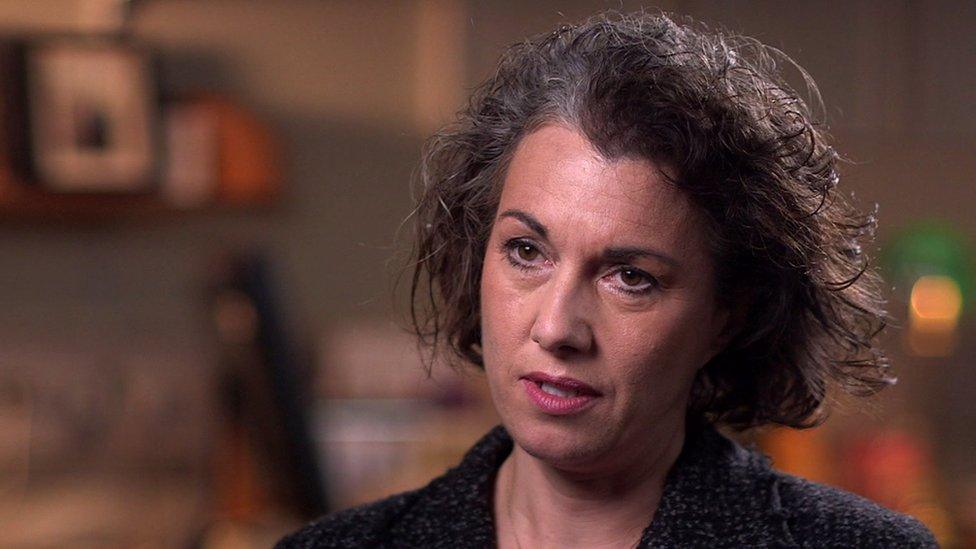
Sarah Champion said South Yorkshire Police needed to rebuild trust
In response to the report, Deputy Chief Constable Tim Forber said: "We let victims of CSE down. We failed to recognise their vulnerability and failed to see them as victims, for that I am deeply sorry.
"They deserved better from us.
"The brave accounts of these girls caused a seismic change in policing crimes of this nature for South Yorkshire Police and the wider police service."

Follow BBC Yorkshire on Facebook, external, Twitter, external and Instagram, external. Send your story ideas to yorkslincs.news@bbc.co.uk, external.
- Published22 June 2022

- Published22 June 2022
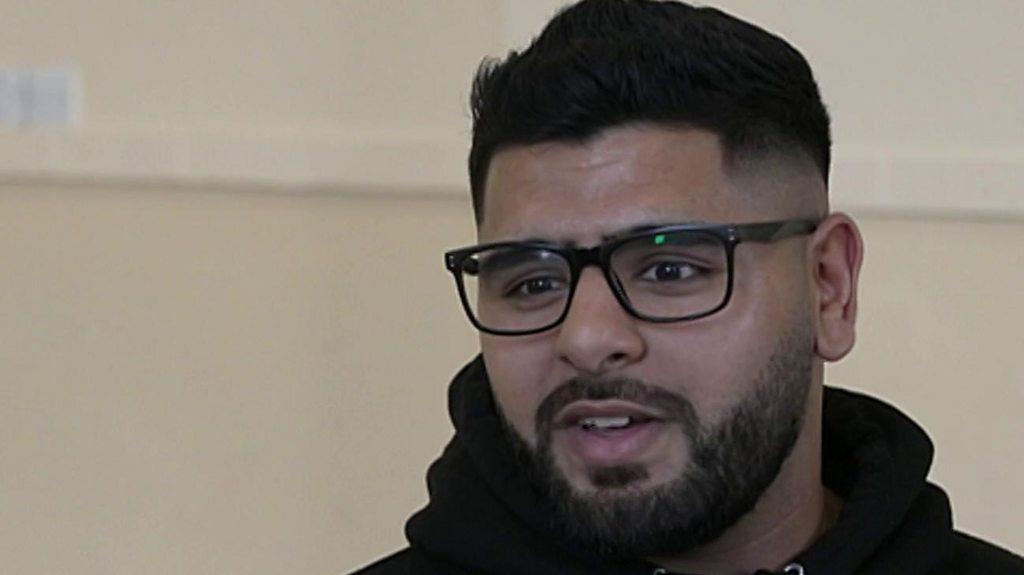
- Published22 June 2022
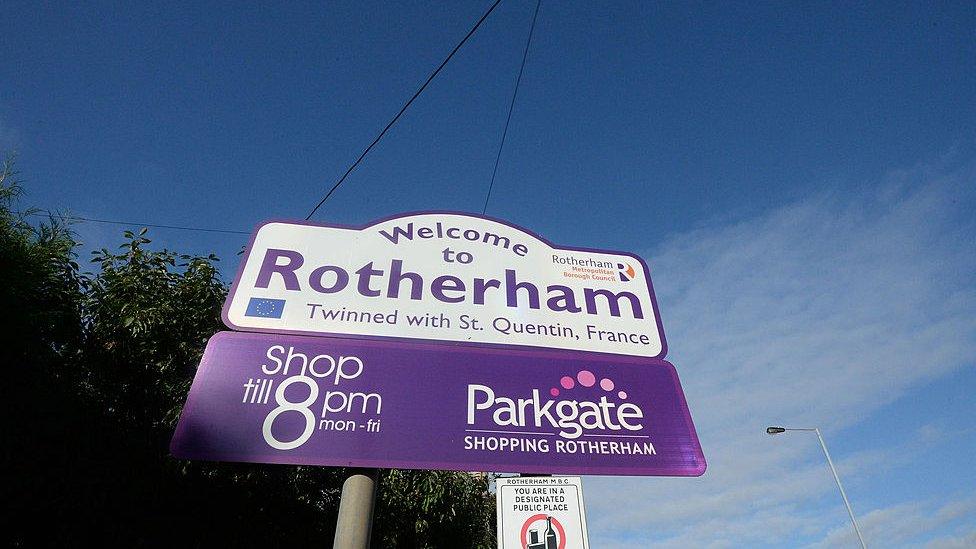
- Published24 May 2022
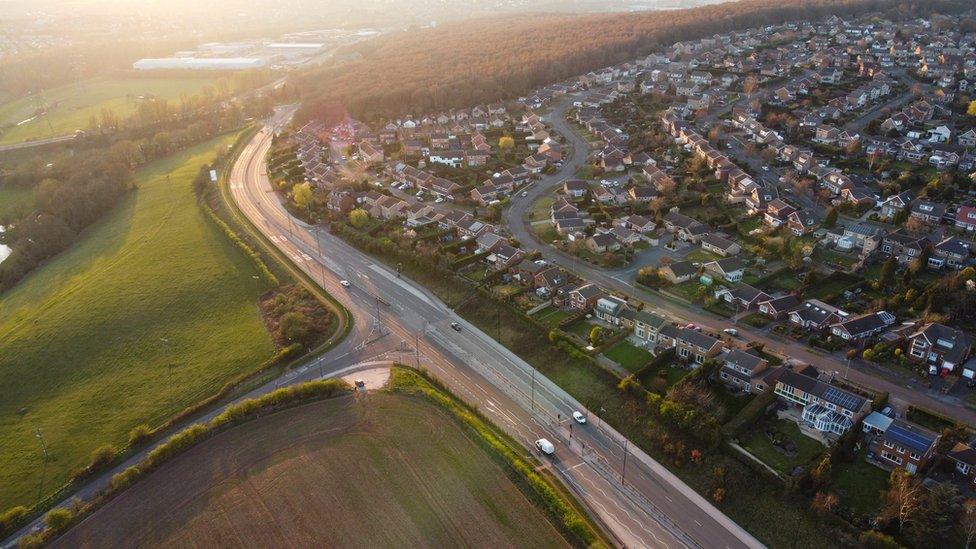
- Published1 April 2022
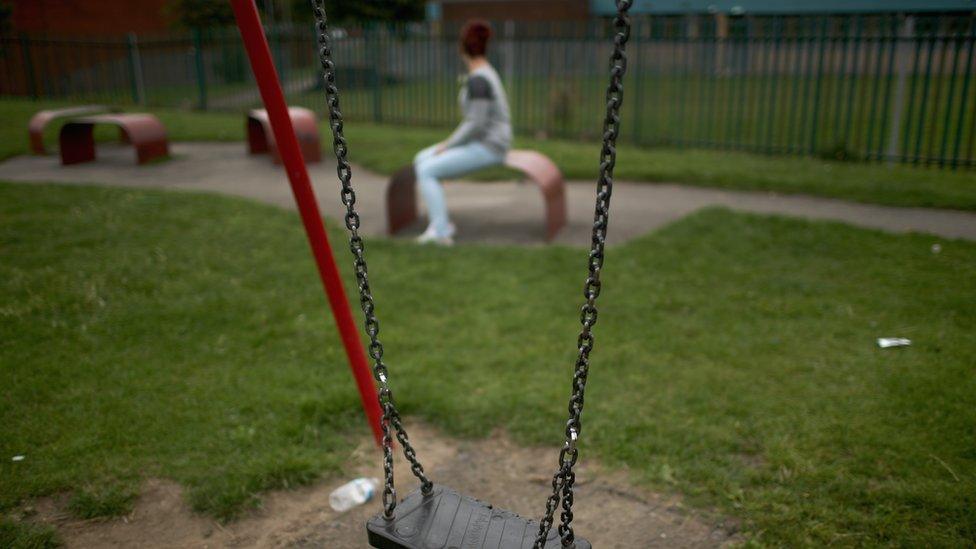
- Published30 December 2021
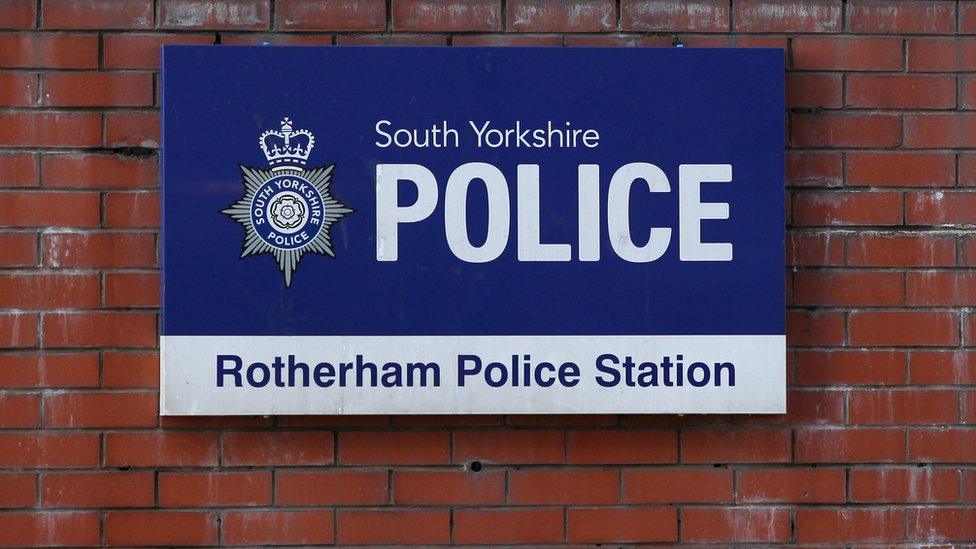
- Published26 August 2015
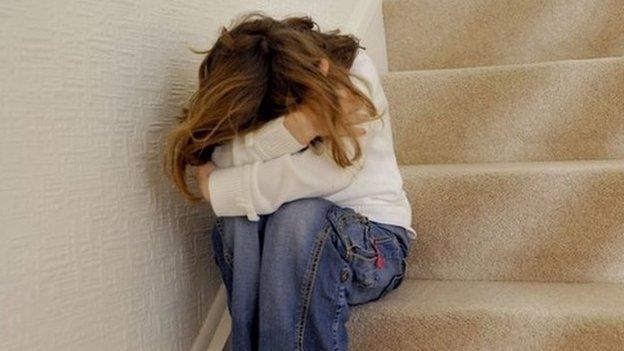
- Published26 August 2014
